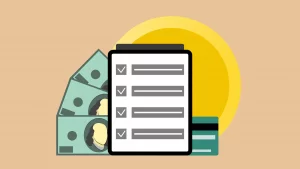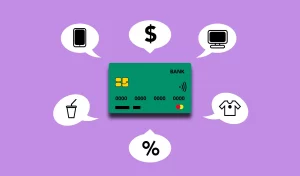A soft credit check occurs when you check your own credit score or when a company checks your credit score as part of a background check. Soft credit checks don’t leave a footprint on your credit report.
Hard credit checks are used by lenders to review your full credit history when you take out a personal loan or mortgage. A hard credit check is carried out each time you apply for a loan. This type of credit search does leave a mark on your credit history.
Whenever you apply for a new credit product, whether that is a loan, mortgage or credit card the company offering the service will require a credit check before they accept you as a customer, so it is extremely important to understand what these credit checks entail.
What is a Soft Credit Check?
The main feature of a soft credit check is that it will have no impact on your credit score. If a lender checks your credit report, soft credit inquiries won’t show up at all.
Soft inquiries are only visible on consumer disclosures—credit reports that you request personally.
How does a soft credit check work?
A soft credit check is simply an initial look at certain information on your credit report.
Companies perform soft searches to decide how successful your application would be without conducting a full examination of your credit history.
Dime Alley will conduct a soft credit check when you apply through us to check your eligibility for a loan and so we know which lenders to put your application through!
However, don’t worry, our soft credit check will not show up on your credit report and won’t affect your score either!
Why would a lender do a soft credit check?
A lender may carry out a soft credit check to see whether you’re eligible for certain products and interest rates.
The lender may want a top-level view of your financial history so they can pre-approve any offers, or show you what you could potentially be eligible for.
You may also find that, in certain industries, employers will want to perform a soft credit check if you’ve recently applied for a job with them. This will ultimately depend on the employer.
What are some examples of a soft credit check?
The following checks are all examples of soft credit searches:
- Personal credit checks;
- Pre-approved credit offers;
- Insurance applications;
- Account reviews by current creditors.
What is a Hard or Deep Credit Check?
If you’ve made an application for finance, whether it’s for a credit card, personal loan, mortgage or another form of lending, the lender will do an in-depth check of your credit report, and this is known as a hard credit check.
Unlike a soft credit check, a hard credit check will be recorded on your credit file. It could lower your scores by a few points, or may have a negligible effect on your scores.
However, don’t be alarmed as in most cases, a single hard search is unlikely to play a huge role in whether you’re approved for a new card or loan.
Most hard searches stay on your credit report for 12 months.
Why might a lender conduct a hard credit check?
A hard credit check will often be done after a soft credit check, once you agree to commit to a financial product. In simpler terms it’s when you agree to buy the product.
However, some companies can do a hard credit check at the point of application, so please do your research before applying.
Hard credit checks can be carried out for lots of reasons, but the most common reasons tend to be when you apply for a loan, a credit card or mortgage, when you open a new utility account or when you pay-monthly for a mobile phone contract.
What are some examples of a hard credit check?
The following checks are all examples of hard credit searches:
- Loan applications (mortgage, auto, student, personal, etc…);
- Credit card applications;
- Requests for credit limit increases;
- Applications for lines of credit;
- New utility applications;
- Apartment rental applications.
How many points does a hard credit search cost?
According to FICO, one new inquiry will generally lower a credit score by less than five points. As that inquiry grows older, the impact on your score should be less until it no longer counts at all.
Typically speaking, a hard credit search no longer has any affect on your credit report 12 months after it’s carried out.
Best Ways to Boost your Credit Score
Check your credit report for errors
One way to quickly increase your credit score is to review your credit report for any errors that could be negatively impacting you. Your score may increase if you are able to dispute the errors and have them removed.
About 25% of Americans have an error on their credit reports, so it’s important to take the time to review. Some common errors to look out for include fraudulent or duplicated accounts, as well as misreported payments.
Request an increase in your credit limit
Another way to increase your credit score is by requesting an increase to your credit limit. Each credit card company will have a different process but it’s typically very easy and very quick. Most credit cards will let you do this online.
By increasing your credit limit, you lower your utilization and thus increase your credit score.
Pay-off your credit card bills
Another way to improve your credit is to work on paying off your credit cards. If you have several cards with a balance, focus on the highest card balance to reduce your credit utilization ratio.
Paying down your outstanding debt can also improve your debt-to-income ratio, which is used by many lenders.

